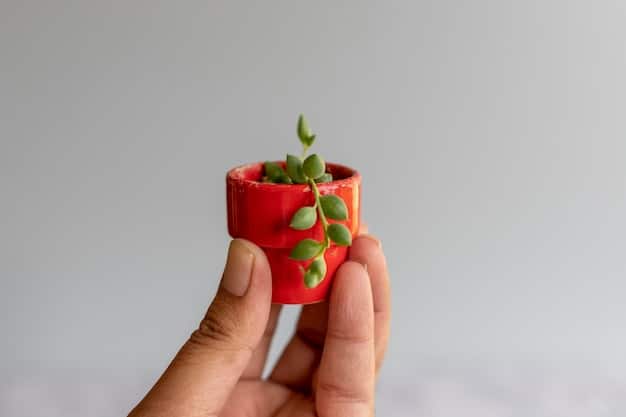Gratitude’s Power: Boost Mental Health by 10% with Simple Practices

The Power of Gratitude: Simple Practices to Boost Your Mental Health by 10% involves consciously focusing on and appreciating the positive aspects of your life, leading to improved mental well-being and a more optimistic outlook.
In today’s fast-paced world, mental well-being is more crucial than ever. Discover the power of gratitude: simple practices to boost your mental health by 10%, enhancing your overall happiness and resilience.
Understanding Gratitude: What It Is and Why It Matters
Gratitude is more than just saying “thank you”. It’s a deep appreciation for the good things in your life, whether big or small. Understanding its profound effects can significantly improve your mental health.
Here’s why embracing gratitude is essential in today’s world.
The Psychological Definition of Gratitude
From a psychological perspective, gratitude is an emotion that arises when you acknowledge that you have received something good and that the source of this goodness is at least partly outside yourself.
This recognition fosters a sense of connection and well-being.
Gratitude vs. Politeness: Knowing the Difference
While politeness involves expressing thanks as a social norm, gratitude goes beyond mere courtesy. It is a heartfelt appreciation that acknowledges the value in what you’ve received.
Grateful people feel a genuine sense of thankfulness.
- Improved Mood: Regularly practicing gratitude can lead to a more positive outlook.
- Increased Resilience: Gratitude helps you cope with stress by focusing on the positive.
- Better Relationships: Expressing gratitude strengthens bonds with others.
- Enhanced Self-Esteem: Appreciating yourself and your life boosts self-worth.
In summary, understanding gratitude involves recognizing its depth and differentiating it from simple politeness. It’s a powerful emotion that fosters positivity and well-being.

The Science Behind Gratitude and Mental Health
The benefits of gratitude are not just anecdotal; scientific research backs its positive impact on mental health. Understanding the neuroscience behind gratitude can further motivate you to incorporate it into your daily life.
Let’s explore how gratitude affects your brain and body.
How Gratitude Changes Your Brain Chemistry
Studies have shown that practicing gratitude can increase levels of dopamine and serotonin, neurotransmitters associated with happiness and well-being. These chemicals play a crucial role in regulating mood and emotions.
Gratitude positively influences brain function and happiness.
The Link Between Gratitude and Stress Reduction
Gratitude helps buffer against stress by shifting your focus from negative experiences to positive ones. This mindset reduces the production of cortisol, the stress hormone, leading to a calmer and more balanced state.
Cortisol levels decrease with consistent gratitude practice.
- Decreased Anxiety: Regularly acknowledging positive aspects can reduce symptoms of anxiety.
- Improved Sleep: A grateful mindset promotes relaxation and better sleep quality.
- Boosted Immune System: Lowering stress levels through gratitude can strengthen the immune system.
- Increased Empathy: Gratitude fosters a greater sense of connection and compassion towards others.
In essence, the science of gratitude reveals its measurable effects on brain chemistry and stress reduction, reinforcing its importance for mental wellness.
Simple Gratitude Practices for Daily Life
Incorporating gratitude into your daily routine doesn’t have to be complicated. Simple, consistent practices can make a significant difference in your overall mental health.
Let’s explore some practical ways to cultivate gratitude.
Creating a Gratitude Journal
One of the most effective ways to foster gratitude is by keeping a gratitude journal. Each day, write down a few things you’re grateful for, no matter how small.
Reflect on these positives to boost your mood.
Expressing Gratitude to Others
Verbalizing your appreciation to others strengthens relationships and enhances your own sense of well-being. A simple “thank you” can have a significant impact.
Share your appreciations to create meaningful connections.
- Gratitude Walks: Take a walk and focus on the things you appreciate in your surroundings.
- Gratitude Jar: Write down things you’re grateful for on small notes and place them in a jar.
- Mindful Moments: Take a few moments each day to consciously appreciate the good things in your life.
- Gratitude Letters: Write letters of thanks to people who have positively impacted your life.
To summarize, integrating simple gratitude practices like journaling and expressing thanks can transform your daily life and enhance your mental well-being.
Overcoming Obstacles to Gratitude
While the concept of gratitude is straightforward, practicing it can sometimes be challenging. Overcoming common obstacles requires awareness and intentional effort.
Here’s how to address some potential hindrances.
Dealing with Negative Thoughts
Negative thoughts can make it difficult to focus on the positive. Acknowledge these thoughts without judgment, and then consciously shift your attention to things you’re grateful for.
Counter negativity with gratitude-focused reflections.
Maintaining Gratitude During Difficult Times
It’s especially important to practice gratitude during tough times. Even in difficult circumstances, there are often small blessings to be found. Focusing on these can provide a sense of hope and resilience.
Find silver linings even during challenging situations.
- Reframe Perspective: Look at challenges as opportunities for growth.
- Practice Self-Compassion: Be kind to yourself and acknowledge your struggles.
- Seek Support: Connect with friends or family who can offer encouragement.
- Celebrate Small Wins: Acknowledge and appreciate the small positive moments.
Concisely, overcoming obstacles to gratitude involves managing negative thoughts and maintaining a grateful mindset, even during difficult times, to foster mental wellness.

Gratitude and its Impact on Relationships
Gratitude not only benefits individual mental health but also strengthens interpersonal relationships. Expressing gratitude fosters deeper connections and mutual appreciation.
Let’s explore how gratitude enhances your relationships.
The Role of Gratitude in Strengthening Bonds
When you express gratitude to someone, it makes them feel valued and appreciated. This, in turn, strengthens the bond between you and creates a more positive dynamic.
Showing appreciation deepens interpersonal connections.
Improving Communication Through Gratitude
Expressing gratitude promotes open and positive communication. It creates a safe space for sharing feelings and fosters mutual understanding and respect.
Communicate honestly to enhance relational bonds.
- Active Listening: Pay attention when others share their feelings and experiences.
- Random Acts of Kindness: Do something thoughtful for someone without expecting anything in return.
- Quality Time: Spend meaningful time with loved ones, focusing on connection.
- Verbal Affirmations: Express your appreciation and admiration for others directly.
In summary, gratitude plays a vital role in enhancing relationships by strengthening bonds and improving communication, resulting in a more supportive and fulfilling social environment.
Measuring the Impact: Tracking Your Gratitude Journey
To truly appreciate the benefits of gratitude, it’s helpful to track your progress and measure its impact on your mental health. Monitoring your journey can provide valuable insights and motivation.
Here’s how to monitor your gratitude journey.
Using a Gratitude Scale or Questionnaire
Utilize a standardized gratitude scale or questionnaire to assess your levels of gratitude before and after implementing gratitude practices. This provides a quantitative measure of your progress.
Questionnaires can help you track your transformation and improvements.
Keeping a Personal Gratitude Log
Maintain a personal gratitude log to document your daily experiences and reflections. Note any changes in mood, stress levels, or overall well-being as you continue your gratitude practices.
Measuring the changes in your mental health can inspire you to continue your journey.
- Journal Prompts: Use specific prompts to guide your reflections and track consistent progress.
- Mood Tracking Apps: Use digital tools to monitor your mood and correlate it with gratitude practices.
- Goal Setting: Set specific, measurable, achievable, relevant, and time-bound (SMART) goals related to gratitude.
- Regular Review: Periodically review your progress to identify patterns and areas for improvement.
Measuring the impact of gratitude allows you to quantify its benefits, providing evidence for its effectiveness and motivating you to continue fostering a grateful mindset.
| Key Point | Brief Description |
|---|---|
| 😊 Gratitude Definition | Appreciating the positive aspects of your life beyond simple politeness. |
| 🧠 Brain Chemistry | Gratitude increases dopamine and serotonin, enhancing mood and reducing stress. |
| ✍️ Gratitude Journal | Writing down daily appreciations fosters a more positive outlook on life. |
| 🤝 Relationships | Expressing gratitude strengthens bonds and promotes positive communication. |
Frequently Asked Questions about Gratitude
Gratitude enhances mental health by boosting neurotransmitters like dopamine and serotonin, reducing stress hormones such as cortisol, and shifting your focus to positive aspects of life, leading to improved mood and resilience.
Simple daily practices include maintaining a gratitude journal, verbally expressing appreciation to others, taking mindful walks to observe and appreciate your surroundings, and setting aside moments to consciously recognize positive aspects.
Gratitude strengthens relationships by making others feel valued and appreciated, fostering deeper connections, and promoting positive, open communication. Expressing gratitude helps deepen mutual trust and respect.
Yes, gratitude provides a sense of hope and resilience, helping individuals focus on even small blessings amidst challenges. It aids in reframing perspective and fostering self-compassion, reducing negative thoughts that can exacerbate stress.
Use gratitude scales or questionnaires to assess base levels, maintain a personal gratitude log to document experiences, track your mood with apps, set specific goals related to gratitude, and regularly review progress to identify patterns.
Conclusion
Embracing the power of gratitude is a transformative step toward enhancing your mental well-being. By incorporating simple practices like journaling, expressing thanks, and mindful reflection, you can boost your mental health by 10% and cultivate a more positive and resilient outlook on life.





